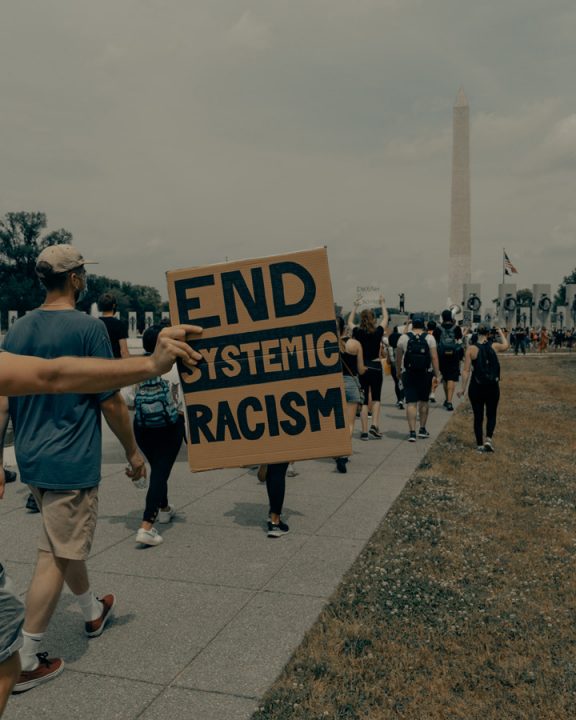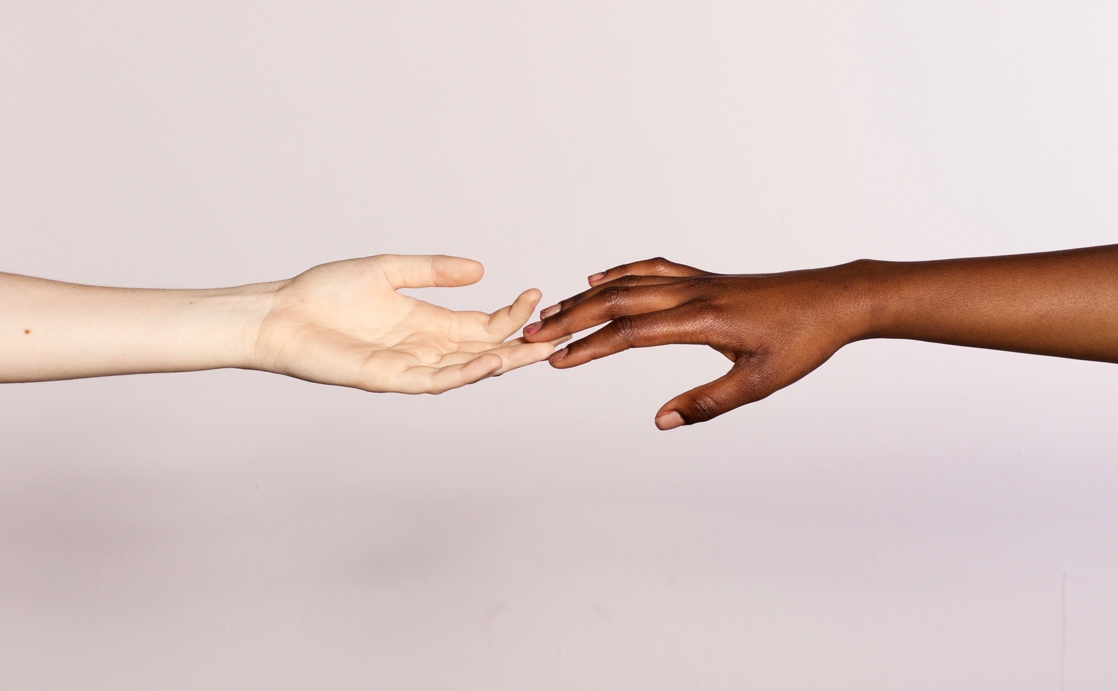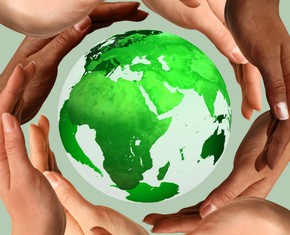The views expressed in our content reflect individual perspectives and do not represent the authoritative views of the Baha'i Faith.
Racism—an artificial construct based on a fundamental denial of the oneness of humanity—only got its name recently, when the word was coined in the early 1900s.
Racism embodies the fallacy that we can be divided into superior and inferior subgroups. This has historically brought human civilizations the basis for slavery, the Holocaust, colonialism, castes, apartheid, pogroms, subjugation of Indigenous peoples, and all the brutal variations thereof.
Racism has shaped our world. It has spawned elaborate systems of cultural, legal and economic enforcement which have infused our worldwide social fabric, been built into our educational systems, and ultimately become embedded in our governments and institutions at all levels. The advantages it bestows on each subsequent generation is, for those with white skin, the racial equivalent of original sin.
The more blatant forms of racism have toned down during the past hundred and fifty years. Chattel slavery has diminished around the world, and the fake science of eugenics that once sought to legitimize racism is now relegated to a wacko historical footnote. But the legacy of white supremacy remains and thrives. Its systemic, deeply embedded nature resembles a virus that mutates constantly without ever totally disappearing. Only when it is exposed for all to see—and its painful consequences honestly, openly and collectively addressed—can it be eradicated.
The struggle for racial justice represents one of the preeminent global crises that must be addressed in order for the rest of our collective issues to be successfully resolved. In 1985, the Universal House of Justice, the democratically-elected international governing body of the Baha’is, addressed a message to the peoples of the world inviting them to consider that a new social order can be fostered by all peoples seeing themselves as members of one universal family. This message was presented to world leaders and countless others during the United Nations International Year of Peace. One extract reads:
Racism, one of the most baneful and persistent evils, is a major barrier to peace. Its practice perpetrates too outrageous a violation of the dignity of human beings to be countenanced under any pretext. Racism retards the unfoldment of the boundless potentialities of its victims, corrupts its perpetrators, and blights human progress. Recognition of the oneness of mankind, implemented by appropriate legal measures, must be universally upheld if this problem is to be overcome.
Just as the United States of America has historically set a global standard for democracy, notwithstanding the challenges it currently faces in this regard, Baha’is believe that the country is similarly destined to help raise the bar for racial justice in the world. Note in particular the last line of this excerpt from a message written in 2020 by the U.S. Baha’i National Spiritual Assembly:
The Baha’is of the United States join our fellow-citizens in heartfelt grief at the deaths of George Floyd, Breonna Taylor, Ahmaud Arbery, and so many others whose lives were suddenly taken by appalling acts of violence. These heartbreaking violations against fellow human beings, due only to the color of their skin, have deepened the dismay caused by a pandemic whose consequences to the health and livelihoods of people of color have been disproportionately severe. This has come to pass against a backdrop of longstanding racial injustice in virtually every aspect of American life. It is clear that racial prejudice is the most vital and challenging issue we face as a country.

Black Lives Matter, as just one example, has grown exponentially, galvanizing support and engagement from a broad cross section of the population. “It looks, for all the world, like these protests are achieving what very few do: setting in motion a period of significant, sustained, and widespread social, political change,” noted Douglas McAdam, an emeritus professor at Stanford University who studies social movements. “We appear to be experiencing a social change tipping point—that is as rare in society as it is potentially consequential.”
The next phase in fighting racism will include acknowledging and learning about how it impacts every aspect of our lives. For white people in particular, we need to understand the different levels of individual, institutional and systemic racism, with the latter referring to the “cumulative and compounding effects of an array of societal factors, including the history, culture, ideology and interactions of institutions and policies that systematically privilege white people and disadvantage people of color.” What will be important is to watch for how increased awareness is translated into new laws, policies, curriculum, regulations and other measures to reduce racial inequality.
The Baha’i teachings encourage everyone, no matter their color, class, or country, to join in the battle to eradicate racism and prejudice. Abdu’l-Baha, the son and successor of Baha’u’llah, wrote:
Today the one overriding need is unity and harmony … for they should have among them but one heart and soul and should, so far as in them lieth, unitedly withstand the hostility of all the peoples of the world; they must bring to an end the benighted prejudices of all nations and religions and must make known to every member of the human race that all are the leaves of one branch, the fruits of one bough.
















Comments
Sign in or create an account
Continue with Googleor